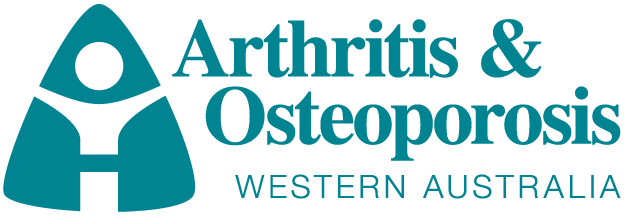In “Nutrition and JIA,” we discussed the importance of eating healthy because of JIA. Keep in mind, though, that eating a nutritious diet is important whether or not you have JIA.
Teenagers normally have a growth spurt between ages 12 to 18. A healthy diet helps your growth and development. It provides the right amount of nutrients to keep you healthy and helps to prevent health problems. A poor diet may lead to problems such as anaemia (low red blood cells which reduce the amount of oxygen going to body tissues), poor energy, eating disorders and weight problems. A poor diet may cause other health issues later in life such as being under or overweight, heart disease or diabetes. A nutritious diet and regular physical activity can lower your risk of having some of these problems.
The five food groups

A healthy diet should include different kinds of foods from all the food groups. Meals should have enough of the following to help your mind and body grow:
• Vegetables and legumes/beans
• Fruit
• Grain (cereal) foods, mostly wholegrain and/or high cereal fibre varieties
• Lean meats and poultry, fish, eggs, tofu, nuts and seeds and legumes/beans
• Milk, yoghurt cheese and/or alternatives, mostly reduced fat
The foods you eat should be high in vitamins and minerals (nutrient-dense). Your diet should also be low in processed foods, which are high in unhealthy fats (trans fat and some types of saturated fats) and simple sugars. Eating foods that are low in fat and sugar can help you stay at a healthy weight, and decrease the risk of health problems.
Australian Dietary Guidelines can help you make the right decisions for a healthy diet. Check it out to see if you are making healthy choices.
You can even create your own personal food guide.
What foods should you try to limit?
Do you eat out regularly with your friends or family? A diet high in sweets (packaged and prepared candies, biscuits, cakes, etc.), highly processed foods, fried foods and fast foods can result in poor nutrition. It is important to limit fast food and convenience foods and to eat home-made meals more often, since home-made foods are often more nutrient- and fibre-dense, and lower in saturated fat, cholesterol, simple sugars and sodium (salt). Some examples of fast foods and convenience foods are hamburgers, hot dogs, french fries, pizza, potato chips, candy and soda. Try to replace these high fat, high sugar foods with healthy foods from the four food groups (vegetables and fruit, meat and meat alternatives, grains and milk and milk alternatives). You can make big improvements to your diet by making small changes, like swapping out soda/pop for milk or water, or choosing vegetables and healthy dips (like hummus or guacamole) as a snack instead of candy, chips, biscuits, or chocolate bars.
Eating regular meals
Do you tend to skip meals, especially breakfast? Breakfast is a very important meal. It provides many essential nutrients and energy to start the day. A nutritious breakfast can also prevent mid-morning hunger leading to snacking on high-energy ‘junk’ foods rather than more nutritious foods. It is important to eat three meals a day with healthy snacks in between.
What about fad diets?
Some teenagers may want to follow a new fad diet if they see their friends or famous people following it. These diets may be overly restrictive, unbalanced, lacking in essential nutrients and may not have scientific evidence to suggest they have proven benefits. During childhood and adolescence a well-balanced diet is essential to provide all the nutrients you need to grow and stay healthy. Eating should also be an enjoyable experience! Overly restrictive diets can affect your quality of life by limiting your dietary choices, and the times/places you can eat. Dieting too often may also lead to eating disorders such as anorexia nervosa and bulimia nervosa. Anorexia nervosa is defined as an obsessive desire to lose weight by restricting food intake. Bulimia nervosa is binge eating followed by throwing up, using laxative medicine or fasting (not eating at all). You should consult your doctor and/or dietitian for advice before starting elimination or restriction diets to ensure your diet meets all of your nutrient needs.
Other tips for healthy eating
Here are some more tips for healthy eating.
• Drink plenty of water throughout the day. It will keep you hydrated and can reduce hunger pangs.
• Get cooking in the kitchen! Home-made meals are healthier and can be fun to prepare.
• Get your whole family involved! Healthy eating is easier when everyone does it.
• Eat meals together at the kitchen table.
• Choose whole foods (unrefined or unprocessed foods) more often.
• When choosing packaged foods, choose foods with fewer ingredients and additives.
• Choose a diet that provides enough calcium and vitamin D from foods and/or a supplement to meet your growing body’s requirements. Your doctor or dietitian will instruct you on how much to take from a supplement.
| Age (years) | Calcium (Recommended Dietary Intake) | Vitamin D (Adequate Intake) |
| 1-3 | 500 mg/day | 5.0 µg/day |
| 4-8 | 700 mg/day | 5.0 µg/day |
| 9-11 | 1,000 mg/day | 5.0 µg/day |
| 12-18 | 1,300 mg/day | 5.0 µg/day |
What are your goals for eating healthy? Are they SMART goals? Remember that S.M.A.R.T. goals are:
- Specific
- Measurable
- Achievable
- Realistic
- Timely – can be achieved in a realistic time-frame



